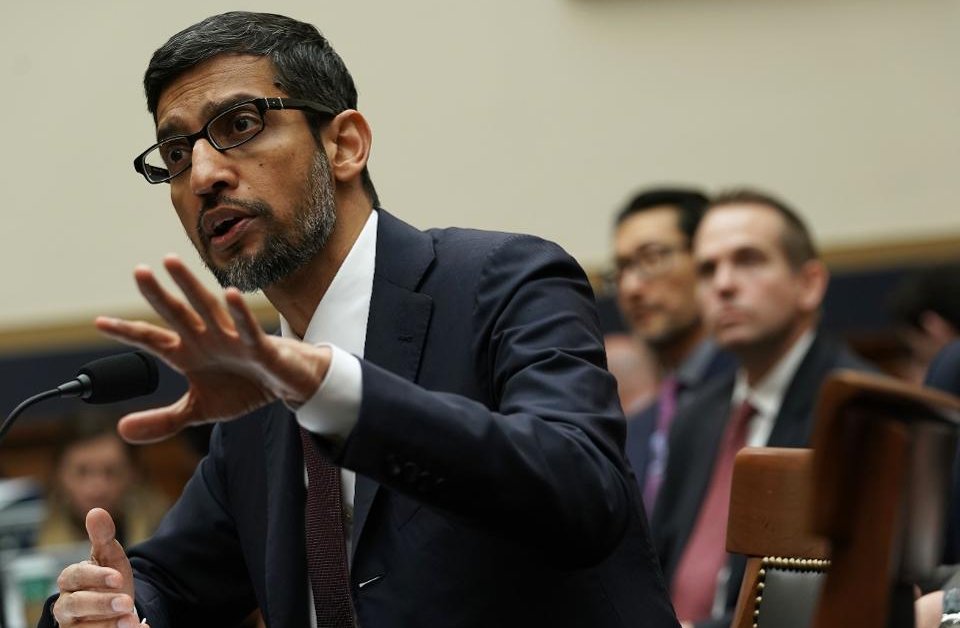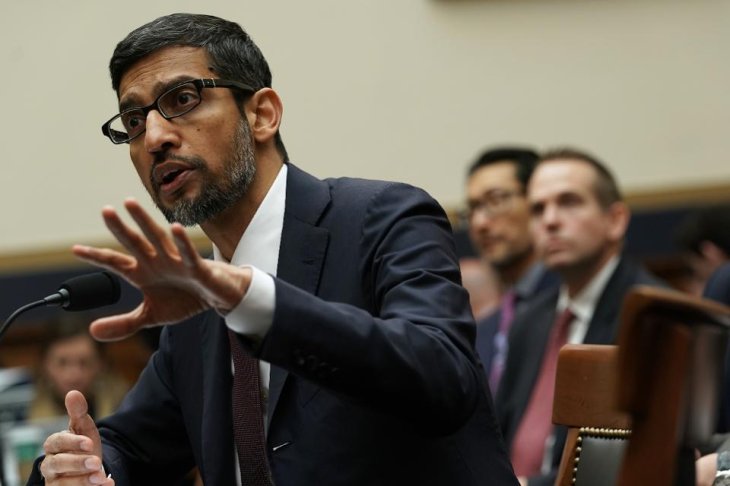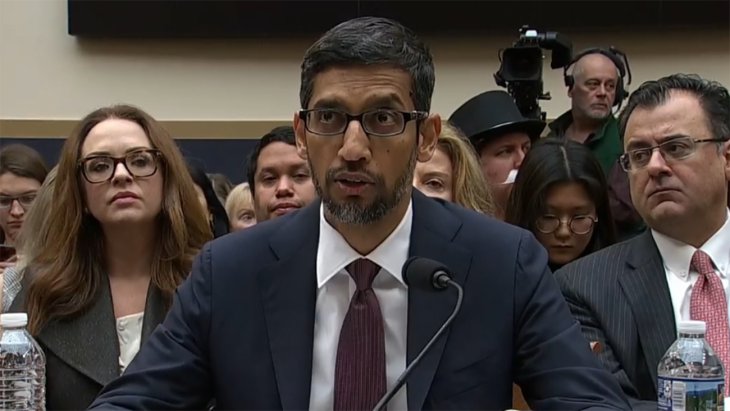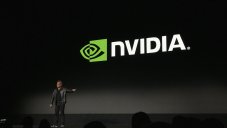Google Says It Can Do Better With User Privacy In Testimony To Congress
Dhir Acharya - Dec 12, 2018

On Tuesday, Sundar Pichai, Google CEO, faced a lot of questions related to privacy concerns in his testimony before the Congress.
- Google To Support 1 Million Women Entrepreneurs In Rural India
- Facebook India: How To Use 'Lock Facebook Profile' Feature
- Xiaomi Phones Caught Harvesting User Data Via Web Browser, Even Incognito Mode
On Tuesday, Google’s CEO Sundar Pichai finally presented himself to testify before the House Judiciary Committee.
The Committee raised a lot of questions for Pichai to answer, among them was one straightforward question: Can you make your products easier for users to understand?
This is the request from a California member of the Republics, Rep. Darrell Issa. By his question, Issa implies that Google does let its users can customize their privacy settings, but the way to do that is not always clear.
Issa asked Pichai whether Google can commit to making the privacy dashboard easier to use, improve transparency and available tools to guide people in protecting their privacy, keeping their data offline, and turning off what they don’t want to have.
In his response, Google CEO said yes, he said Google could do better and that the company wants to make things simpler.

Google CEO, Sundar Pichai, testifying before the Congress
There were many other questions from other Congress members, which pushed Pichai to talk about several privacy issues. Two critical questions were about Google’s data collection of users’ locations that exposed data from millions of Google+’s accounts as well as privacy regulations.
In an era when people are having a better and better awareness of privacy issues, these questions from the Congress indicate that they are seriously worried about the privacy practices of Google and other technology firms.
According to Pichai, Google not only supports federal privacy regulations but also thinks the practice should be applied across the country at the same time, instead of each state at a time. Back in September, Google filed its own proposal for federal regulations on privacy, after California’s privacy law took effect in June.
A California member of the Democrats, Rep. Zoe Lofgren, raised a question about users’ location data. What she asked was if Android phone owners turn off location services, how much location data will be collected.
None was Google CEO’s response. Yet, he then added that users’ IP addresses perhaps reveal some information of location. It has been proved by reports that even after users turn off location services, Google still gathers their location data by obtaining data on Wi-Fi connection positions.

Google CEO, Sundar Pichai, testifying before the Congress
When Democrat member Steve Cohen from Tennessee asked Pichai further questions about location information, Google CEO explained that the same practice also appears at other companies and Google does it mostly for security purposes.
In his explanation, Pichai said that location is one critical piece in the whole picture of people’s usage of the Internet. He also said this area is complex, in which they need to, and they’re trying to do a better job.
Broadening the topic, Rep. Doug Collins, a Georgia member of the Republics, wanted to know the way Google handles various types of data, like names, locations, ages, as well as conversations.
Pichai emphasized that users can totally change their privacy settings, which is something 20 million peoples do every day. Regarding data on conversations, Google CEO said there’s no data collection from users’ conversations if users do not allow this in their settings.
Collins pointed out that Google makes use of users’ data in tailoring advertisements, asking Pichai what measures the company has taken to limit the load of data kept.
To this questions, Pichai responded that minimal data are needed for advertising. He said that Google keeps the data it stores, helping the company give users suitable experiences.
Featured Stories

Mobile - Feb 16, 2026
Xiaomi Launches Affordable Tracker to Compete with Apple's AirTag

ICT News - Feb 15, 2026
X Platform Poised to Introduce In-App Crypto and Stock Trading Soon

ICT News - Feb 13, 2026
Elon Musk Pivots: SpaceX Prioritizes Lunar Metropolis Over Martian Colony

ICT News - Feb 10, 2026
Discord's Teen Safety Sham: Why This Data Leak Magnet Isn't Worth Your Trust...

ICT News - Feb 09, 2026
PS6 Rumors: Game-Changing Specs Poised to Transform Console Play

ICT News - Feb 08, 2026
Is Elon Musk on the Path to Becoming the World's First Trillionaire?

ICT News - Feb 07, 2026
NVIDIA's Gaming GPU Drought: No New Releases in 2026 as AI Takes Priority

ICT News - Feb 06, 2026
Elon Musk Clarifies: No Starlink Phone in Development at SpaceX

ICT News - Feb 03, 2026
Elon Musk's SpaceX Acquires xAI in Landmark $1.25 Trillion Merger

ICT News - Feb 02, 2026
Google's Project Genie: Premium Subscribers Unlock Interactive AI-Generated Realms
Read more

Mobile- Feb 16, 2026
Xiaomi Launches Affordable Tracker to Compete with Apple's AirTag
For users tired of ecosystem lock-in or high prices, the Xiaomi Tag represents a compelling, no-frills option that delivers core functionality at a fraction of the cost.

ICT News- Feb 15, 2026
X Platform Poised to Introduce In-App Crypto and Stock Trading Soon
X has been laying the groundwork for this expansion.

Mobile- Feb 17, 2026
Anticipating the Samsung Galaxy S26 and S26+: Key Rumors and Specs
The Samsung Galaxy S26 series is on the horizon, sparking excitement among tech enthusiasts.
Comments
Sort by Newest | Popular